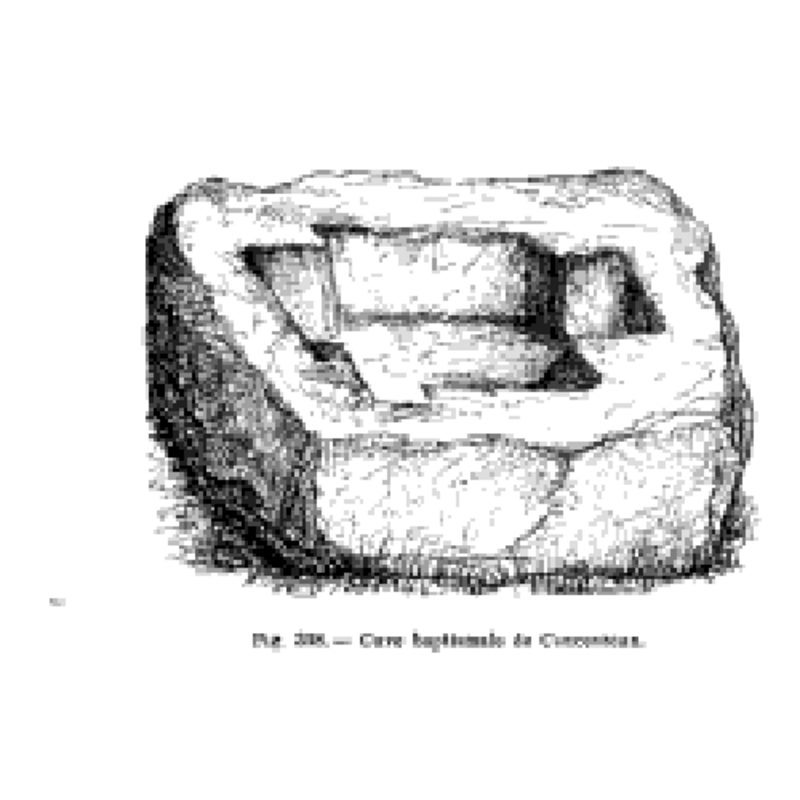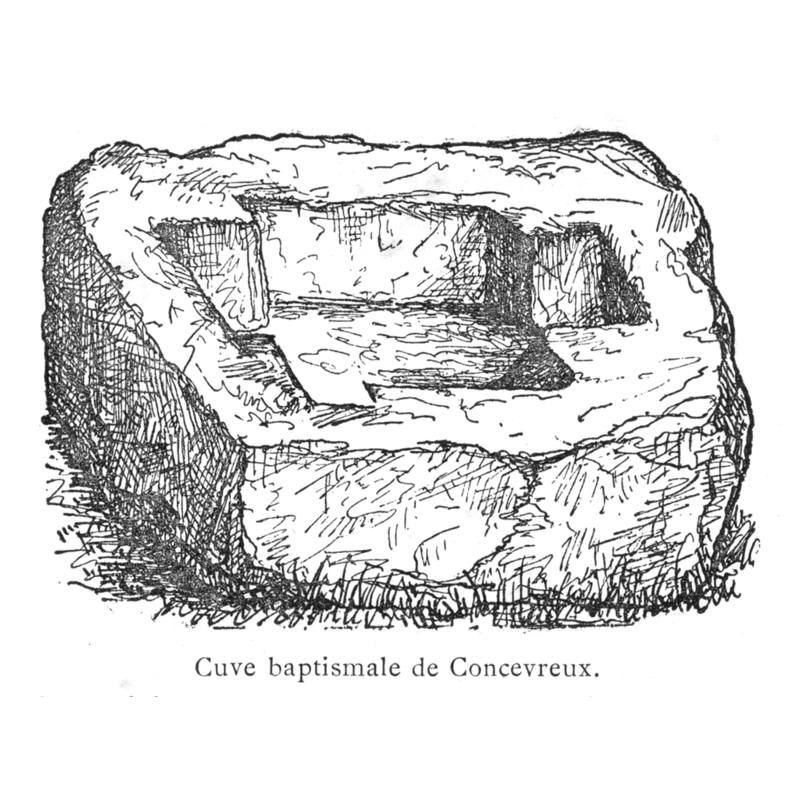Concevreux / Curia superioris / Curtis superioris

Image copyright © [in the public domain]
PD
Results: 3 records
view of font
view of font
view of font in context
Copyright Statement: Image copyright © piganl, 2014
Image Source: digital photograph in [http://photos.piganl.net/2009/concevreux/concevreux.html] [accessed 8 January 2014]
Copyright Instructions: PERMISSION NOT AVAILABLE -- IMAGE NOT FOR PUBLIC USE
INFORMATION
Font ID: 02911CON
Object Type: Baptismal Font3
Font Century and Period/Style: 4th - 5th century [Fleury] / 11th century [Enlart] / 4th-5th century [Corblet], Early Christian? / Gallo-Roman?
Church / Chapel Name: Église paroissiale Saint-Pierre-et-Saint-Paul
Font Location in Church: In the churchyard / cemetery
Church Patron Saint(s): Saint-Pierre-et-Saint-Paul
Church Address: 02160 Concevreux, France
Site Location: Aisne, Hauts-de-France, France, Europe
Directions to Site: Located off the D22 [aka rue de Doyenet], W of Guignicourt, 35 km E of Laon, NW of Reims
Ecclesiastic Region: Diocèse de Soissons, Laon et Saint-Quentin
Historical Region: la Thiérache -- Le Laonnois
Font Notes:
Click to view
Noted and illustrated in Fleury (1878-1882) as a sandstone immersion font of the original 4th or 5th-century church here, now in the churchyard; the font is quadrangular on the outside, and has the cruciform inner well characteristic of many fonts of the Early Christian period; it is provided with drainage at the bottom: "Lourde et massive, elle était destinée à être déposée, en vue du baptême par immersion, à l'entrée de la primitive église. Le catéchumène se plaçait au centre, les genoux pliés, la tête courbée, et y recevait l'eau qui s' écoulait par un orifice percé au fond de l'excavation et à l'extrémité droite d' un des côtés étroits de la croix. Sur l'un des plats-bords des côtés longs l'on aperçoit, à chacun des deux bouts, deux petites cavités où était scellée l'extrémité bifurquée de deux tiges verticales de fer auxquelles se rattachait sans nul doute une autre tige horizontale d'où devait tomber une étoffe servant à dérober aux yeux des fidèles [...] le prêtre et le catéchumène nu qu'on allait baptiser. On peut presque affirmer le IVe ou le Ve siècle". Corblet (1881-1882), who uses Fleury as source, shows a very rudimentary rectangular font, totally plain, with a roughly-cruciform inner well, and quotes Fleury's dating of 4th or 5th century. According to Enlart (1902) this is a rounded font with four short feet "imitant la forme d'une marmite". Listed in Palissy [ref.: PM02000300]: "Cuve baptismale cruciforme gallo-romaine."
COORDINATES
UTM: 31U 557345 5469689
MEDIUM AND MEASUREMENTS
Material: stone, sandstone
Font Shape: sunken font, rectangular
Basin Interior Shape: cruciform
Basin Exterior Shape: rectangular
Diameter (inside rim): 110 x 80 cm*
Basin Depth: 30-35 cm*
Trapezoidal Basin: 158 x 137 cm* -- 166 x 136 cm**
Notes on Measurements: * measurements originally in Fleury (1878-1882: pt..2, p. 271); used in Corblet (1881-1882, v. 2, p. 119) -- ** Palissy [ref.: PM02000300]
REFERENCES
- Corblet, Jules, Histoire dogmatique, liturgique et archéologique du sacrement de baptême, Paris: V. Palme, 1881-1882, vol. 2, p. 119
- Enlart, Camille, Manuel d'archéologie française depuis les temps mérovingiens jusqu'à la Renaissance, Paris: Alphonse Picard & fils, 1902, p. 771 and footnote 2
- Fleury, Edouard, La France archéologique: antiquités et monuments du département de l'Aisne (4e partie), Laon: Chez H. Menu, librarire, 1878-1882, pt. 2: 271 and fig. 338

